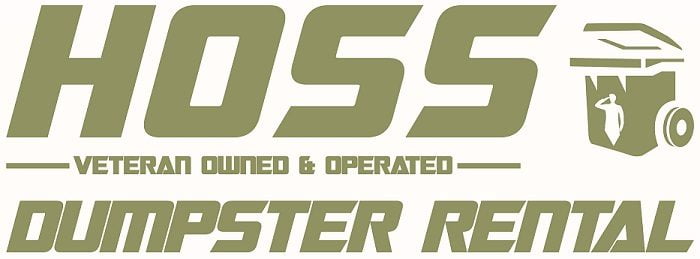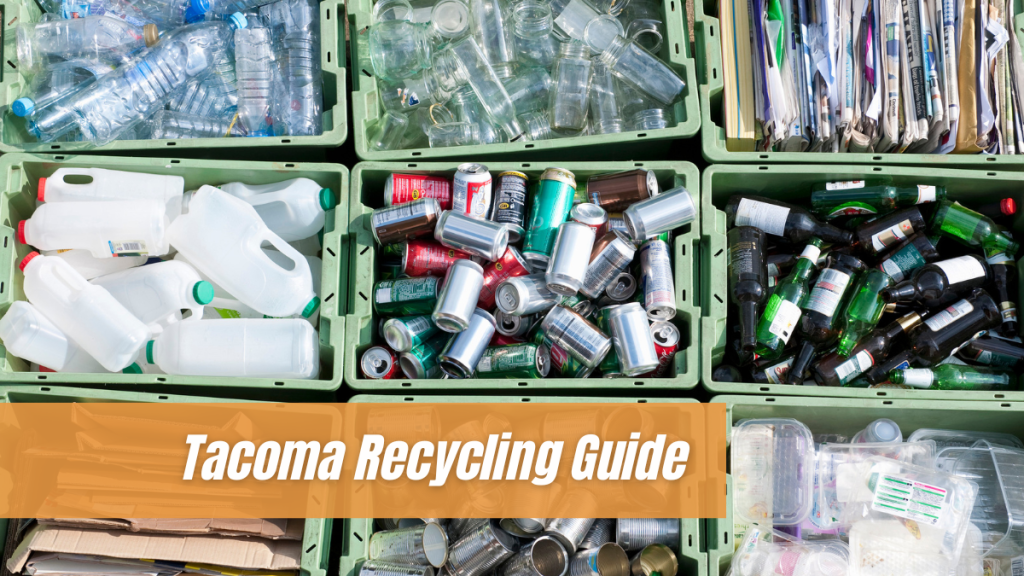Tacoma Recycling Guide
Tacoma Recycling Guide: What You Need to Know
Recycling is a vital part of maintaining a sustainable and environmentally friendly community, but understanding the specific rules can sometimes be a challenge. In Tacoma, residents and businesses are encouraged to play their part by adhering to a set of recycling guidelines designed to reduce waste and protect natural resources. Whether you’re new to the area or just need a refresher, this guide will break down Tacoma’s recycling rules, helping you sort materials correctly, avoid common mistakes, and contribute to a greener future; Hoss Junk Removal is here to help you navigate the recycling process effectively!
This guide will break down everything you need to know about Tacoma’s recycling rules, so you can do your part in preserving the environment and maintaining a cleaner community.
1. Tacoma’s Recycling Program Guide
The City of Tacoma runs a comprehensive curbside recycling program. Residents and businesses in Tacoma have the opportunity to participate in curbside collection for recycling, which is collected every two weeks. Tacoma is committed to sustainability, aiming to cleanout as much waste from landfills as possible.
The program is managed by Tacoma Public Utilities, and they accept a wide variety of recyclable materials, but there are specific rules on what is allowed in the recycling bins. Let’s take a closer look of what is included in a standard junk removal.
2. What Junk Can Be Recycled in Tacoma?
Here is a list of common recyclable materials that are accepted in Tacoma’s curbside recycling program:
Paper Products:
- Newspapers, magazines, and catalogs
- Cardboard (flattened, no larger than 3 feet by 3 feet)
- Office paper, junk mail, and paperboard (e.g., cereal boxes, tissue boxes)
- Paper towel rolls and toilet paper rolls (without any contamination from food or cleaning products)
Plastic Products:
Tacoma’s recycling program accepts many types of plastic, but there are specific guidelines:
- #1 (PET) and #2 (HDPE) plastic containers, such as water bottles, milk jugs, and detergent bottles
- #3 (PVC), #4 (LDPE), #5 (PP), and #7 (Other) plastics, as long as they are clean and dry
- Plastic containers labeled with the recycling symbol that indicate the material type (such as yogurt containers, bottle caps, and lids)
Glass Recycling:
- Clear and colored glass bottles and jars (such as beverage bottles, jam jars, and food jars)
Metal:
- Aluminum cans (e.g., soda cans, beer cans)
- Steel cans (e.g., soup cans, tuna cans)
- Aluminum foil (must be clean and free from food residue)
It’s important to note that plastic bags and film plastic are not accepted in the curbside recycling bins. These materials can get tangled in the sorting machinery at the recycling center, so they need to be taken to special recycling drop-off locations, such as grocery stores that offer plastic bag recycling stations.
3. What Not to Recycle in Tacoma
While Tacoma’s curbside recycling program is broad, there are still several items that should never be placed in the blue bins. These include:
Contaminated Materials:
- Pizza boxes with grease or food residue
- Takeout containers or food wrappers
- Dirty napkins or paper towels
Contamination is a major issue in recycling. When recyclables are contaminated with food, oil, or other residues, they cannot be processed properly and may end up in the landfill.
Electronics (E-Waste):
- Televisions, computers, phones, and other electronics should not be put in the curbside bin. These are considered e-waste and require special handling. Many locations in Tacoma offer e-waste recycling programs where you can drop off old electronics for proper disposal.
Hazardous Materials:
- Paints, batteries, and chemicals should never go into the recycling bin. These materials are considered hazardous and require specialized disposal methods. Tacoma offers household hazardous waste drop-off events and designated disposal centers for these items.
Plastic Bags and Film Plastic:
- As mentioned earlier, plastic bags should not be placed in the recycling bin. They can clog the sorting machines at the recycling facility. Please take them to dedicated plastic bag recycling stations or reuse them.
4. Special Recycling Programs in Tacoma
In addition to curbside recycling, Tacoma offers several programs to help residents and businesses dispose of other types of waste responsibly:
Composting:
Tacoma offers curbside composting as well! Yard waste, food scraps, and compostable paper products can be placed in the composting bin for proper recycling. This helps reduce organic waste that would otherwise go to the landfill.
E-Waste Recycling:
As mentioned earlier, electronics should not be placed in curbside recycling bins. However, there are several e-waste recycling events throughout the year. Residents can drop off old electronics like phones, computers, and televisions to be properly recycled.
Household Hazardous Waste:
Tacoma holds special events for collecting hazardous materials, including old paint, batteries, and cleaning products. These items should not go into the trash or recycling bins due to their potential harm to the environment. The city provides detailed information on when and where you can drop off these materials for safe disposal.
Large-Item Recycling:
For large items like old furniture or bulky appliances, Hoss Junk Removal can help with responsible disposal. While these large items aren’t typically handled through curbside collection, junk removal services offer convenient pickup options. You can schedule a pickup to have your large items removed, and we’ll ensure they are either donated, recycled, or disposed of properly. Many cities have local dumps you can transfer these items to.
5. Tips for Efficient Recycling of Junk Removal
To make your recycling efforts even more effective, follow these tips:
- Rinse your recyclables: Containers with food, liquid, or grease should be rinsed before placing them in the recycling bin. Clean materials are easier to process.
- Flatten cardboard: This saves space in your bin and helps the recycling facility process the material more efficiently.
- Separate recyclables: Don’t mix recyclables with garbage. Keeping them separate is crucial for proper sorting at the facility.
- Know your local rules: If you live or operate a business in Tacoma, be aware of any updates to recycling guidelines. Local programs may change based on city needs and waste processing capabilities.
6. The Environmental Impact of Recycling
Recycling is a critical part of reducing your environmental footprint. By recycling correctly, you help conserve natural resources, reduce the need for raw material extraction, and lower carbon emissions. For businesses, it can also be a cost-saving measure, as proper recycling may reduce the need for waste hauling services.
At Hoss Junk Removal, we strive to help Tacoma residents and business owners make environmentally responsible choices when it comes to junk removal. If you’re unsure about how to dispose of certain items or need help with a large cleanup, we offer efficient junk removal services and ensure that everything we handle is disposed of responsibly, with as much recycling as possible.
We hope this comprehensive guide helped you today. Understanding the recycling rules in Tacoma is crucial for businesses and residents alike. By knowing what can and can’t be recycled, you can contribute to a more sustainable environment and help Tacoma achieve its waste diversion goals. If you ever find yourself with large quantities of recyclables or need assistance with junk removal, don’t hesitate to contact Hoss Junk Removal. We’re here to help with eco-friendly disposal and recycling solutions that benefit both your business and the planet.

